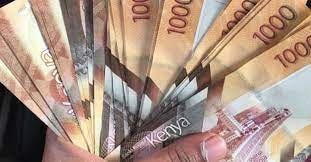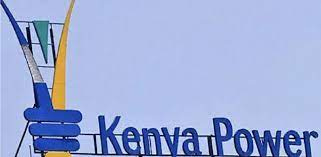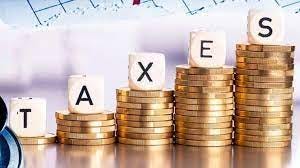Moderna to build mRNA vaccine manufacturing facility in Kenya
Kenya signed a deal to establish a Moderna mRNA vaccine facility in Kenya. President William Ruto announced this during the American Chamber of Commerce Regional Business Summit at the Ole Sereni Hotel in Nairobi.
"It is with pleasure that I announce the finalised deal between Moderna and the government of Kenya to build a Sh500 million dollar MRNA vaccine facility in Nairobi," President Ruto said
What’s next
The agreement will see Moderna establish a state-of-the-art mRNA facility in the city with the goal of producing up to 500 million doses of vaccines each year.
The project's memorandum of understanding (MOU) was signed in between Moderna Inc and the Kenyan government in March 2022.
This will be Moderna's first manufacturing plant outside the United States.
The company will pump up to Ksh 70 billion of investment into the project.
ECONOMY
Cost of loans expected to increase after CBK increased its lending rate to 9.5%
The Central Bank of Kenya (CBK) announced a significant increase in the benchmark lending rate. The Monetary Policy Committee (MPC) increased the CBK rate to 9.5% from 8.75%.
As reported by Business Daily, The move is intended to decrease demand for credit, thereby reducing inflation, which rose to 9.2% in February from 9.0% in January. The new 9.5% rate is the highest since March 2018 and is expected to encourage banks to increase their lending rates.
The average cost of bank loans reached a 52-month high of 12.67% in December, following the CBK rate hikes and rising yields on government paper.
The higher cost of loans poses a significant risk of locking businesses out of accessing credit, which could hinder their growth and limit their ability to create more jobs.
ELECTRICITY
Kenya Power seeks an increase in electricity prices
Kenya Power is seeking an increase in electricity prices in its proposed tariffs. According to Kenya Power, the proposed tariff increase will be the first upward review of power prices since 2018, which is intended to cover the cost of producing and distributing electricity.
The listed utility firm stated that it is engaging with the regulator, EPRA, to have the tariffs approved. If the Energy and Petroleum Regulatory Authority (EPRA) approves the proposed tariffs, households could face an increase of up to 78% starting from April.
Kenya Power has also reduced the threshold for accessing the monthly power subsidy from 100 kilowatt hours to the proposed 30 units.
The subsidy currently offers a 24.1 percent discount on electricity bills for eligible households.
KRA to conduct a data clean-up exercise of taxpayers' registration details
The Kenya Revenue Authority (KRA) issued a notice, urging all taxpayers to update their registration details as part of an ongoing data clean-up exercise.
In a statement issued on Tuesday, March 28, KRA announced that the changes will be effected on the iTax platform. Individuals holding Personal Identification Numbers (KRA PIN) are required to update their current information, including their bank accounts and contacts.
Apart from updating their bank accounts and contacts, taxpayers are also required to provide other details such as their physical address, directorships or partnerships held in companies, source(s) of income, and employer’s PIN (for employed individuals).
The move is aimed at ensuring that the information held by the authority is accurate and up to date.
Moreover, The clean-up exercise is part of KRA's efforts to enhance tax compliance and improve service delivery to taxpayers.
The deadline for updating the registration details is yet to be announced.
TAX
Kenya to gain significantly from the new global taxing mechanism by OECD
According to estimates by the Organisation for Economic Co-operation and Development (OECD), Kenya stands to gain significantly from a new global taxing mechanism aimed at curbing tax avoidance by large multinationals.
Under the new inclusive framework, multinationals will be required to allocate part of their profits to countries where they operate. If Kenya ratifies the framework, it could see its digital services taxes collection increase from the current Ksh 400-500 million ($3-4 million) to between Ksh 3.3-5.3 billion ($25-40 million), representing more than tenfold jump, according to the OECD.
Nickson Omondi, KRA Digital Service Tax lead, said that the new framework would apply to every company with operations in Kenya, compared to the current digital services tax, which only applies to digital service providers.
President William Ruto recently announced that Kenya's digital services tax would be aligned with the OECD framework, which is expected to boost the country's revenue collection efforts significantly.
KRA collected Sh174 million in DST in the six months to December 2022, keeping it on course to beat the full-year total of Sh241 million that was recorded in the year ending June 2022.
KRA was targeting to register 50 extra businesses in the financial year ending June 2023 but has already surpassed this target with 64 companies now on its DST taxes books
President Announced Plan to Scrap VAT on Exported Services
President William Ruto declared that effective July 1, 2023, the government would abolish the Value Added Tax (VAT) on exported services.
The VAT on exported services had been introduced through the Finance Act 2022, which had reclassified exported services (excluding Business Process Outsourcing) from exempt to taxable.
The President acknowledged the challenges that businesses in Kenya have faced regarding VAT on exported services. According to him, the tax not only makes it difficult for businesses to compete, but it also hinders investors who want to make Kenya their regional or global services hub.
WHAT YOU MIGHT HAVE MISSED
Azimio la Umoja leader Raila Odinga called off Monday, April 3, protests to allow for dialogue with the government.
Gulf oil companies reject proposal to have the National Oil Corporation of Kenya to import fuel on credit
Gulf oil companies rejected a proposal to use the National Oil Corporation of Kenya to import fuel on credit due to its poor cash position, forcing the State to allow them to nominate their preferred dealers.
According to Business Daily, Industry sources privy to the talks, which started in September last year disclosed that Saudi Aramco, Emirates National Oil Corporation (Enoc) and the Abu Dhabi National Oil Corporation Global Trading Company (Adnoc) refused to do business with the State-owned entity.
Click here to access I&M Burbridge Capital East Africa Financial Review for february 2023








